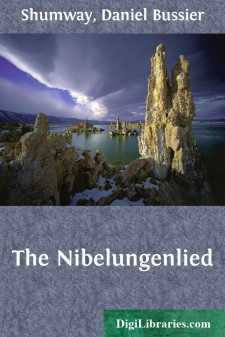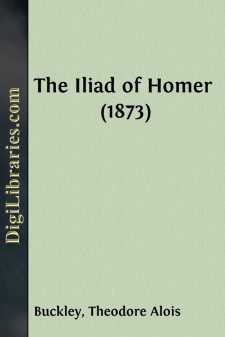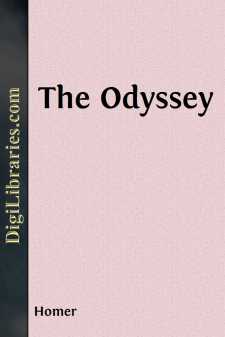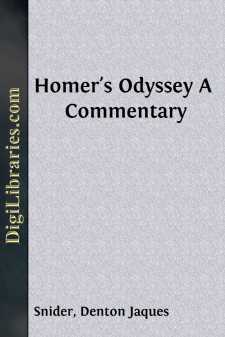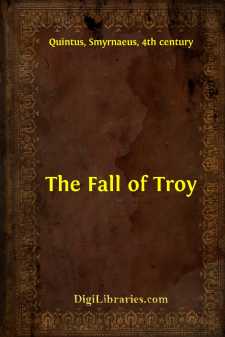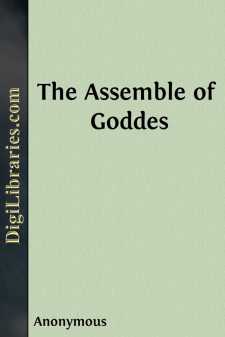Poetry
- American 96
- Ancient, Classical & Medieval
- Asian 15
- Australian & Oceanian 11
- Canadian 11
- Caribbean & Latin American 5
- Children's Poetry & Nursery rhymes 51
- Continental European 11
- English, Irish, Scottish, Welsh 162
- General 483
- Inspirational & Religious 7
- Middle Eastern 3
Ancient, Classical & Medieval Books
Sort by:
VENUS AND ADONIS EVEN as the sun with purple-colour'd faceHad ta'en his last leave of the weeping morn,Rose-cheek'd Adonis tried him to the chase;Hunting he lov'd, but love he laugh'd to scorn; 4Sick-thoughted Venus makes amain unto him,And like a bold-fac'd suitor 'gins to woo him. 'Thrice fairer than myself,' thus she began,'The field's chief...
more...
THE NIBELUNGENLIED (1) ADVENTURE I (2) Full many a wonder is told us in stories old, of heroes worthy of praise, of hardships dire, of joy and feasting, of the fighting of bold warriors, of weeping and of wailing; now ye may hear wonders told. In Burgundy there grew so noble a maid that in all the lands none fairer might there be. Kriemhild (3) was she called; a comely woman she became, for whose sake...
more...
by:
Edward Fairfax
THE ARGUMENT. God sends his angel to Tortosa down, Godfrey unites the Christian Peers and Knights; And all the Lords and Princes of renown Choose him their Duke, to rule the wares and fights. He mustereth all his host, whose number known, He sends them to the fort that Sion hights; The aged tyrant Juda's land that guides, In fear and trouble, to resist provides....
more...
ARGUMENT. Apollo, enraged at the insult offered to his priest, Chryses, sends a pestilence upon the Greeks. A council is called, and Agamemnon, being compelled to restore the daughter of Chryses, whom he had taken from him, in revenge deprives Achilles of Hippodameia. Achilles resigns her, but refuses to aid the Greeks in battle, and at his request, his mother, Thetis, petitions Jove to honour her...
more...
by:
Homer
INTRODUCTION Scepticism is as much the result of knowledge, as knowledge is of scepticism. To be content with what we at present know, is, for the most part, to shut our ears against conviction; since, from the very gradual character of our education, we must continually forget, and emancipate ourselves from, knowledge previously acquired; we must set aside old notions and embrace fresh ones; and, as...
more...
by:
John Milton
THE FIRST BOOK I, WHO erewhile the happy Garden sung By one man's disobedience lost, now sing Recovered Paradise to all mankind, By one man's firm obedience fully tried Through all temptation, and the Tempter foiled In all his wiles, defeated and repulsed, And Eden raised in the waste Wilderness. Thou Spirit, who led'st this glorious Eremite Into the...
more...
HOMER'S ODYSSEY. BOOK FIRST—INTRODUCTION. The Odyssey starts by organizing itself; it maps out its own structure in what may be called a General Introduction. Herein lies a significant difference between it and the Iliad, which has simply an Invocation to the Muse, and then leaps into the thick of the action. The Iliad, accordingly, does not formulate its own organization, which fact has been...
more...
Homer's "Iliad" begins towards the close of the last of the ten years of the Trojan War: its incidents extend over some fifty days only, and it ends with the burial of Hector. The things which came before and after were told by other bards, who between them narrated the whole "cycle" of the events of the war, and so were called the Cyclic Poets. Of their works none have survived;...
more...
by:
Anonymous
P. DUJARDINHere foloweth the Interpretacoin of the namesof goddes and goddesses as is rehercedin this tretyse folowynge as Poetes wryte¶ Phebus is as moche to saye as the Sonne.¶ Apollo is the same or elles God of syght.¶ MorpleusShewer of dremis¶ PlutoGod of hell.¶ MynosIuge of hell.¶ CerberusPorter of hell.¶ Colus the wynde or God of the Eyre.¶ Dyana Goddesse of wode and chase.¶ Phebe the...
more...



